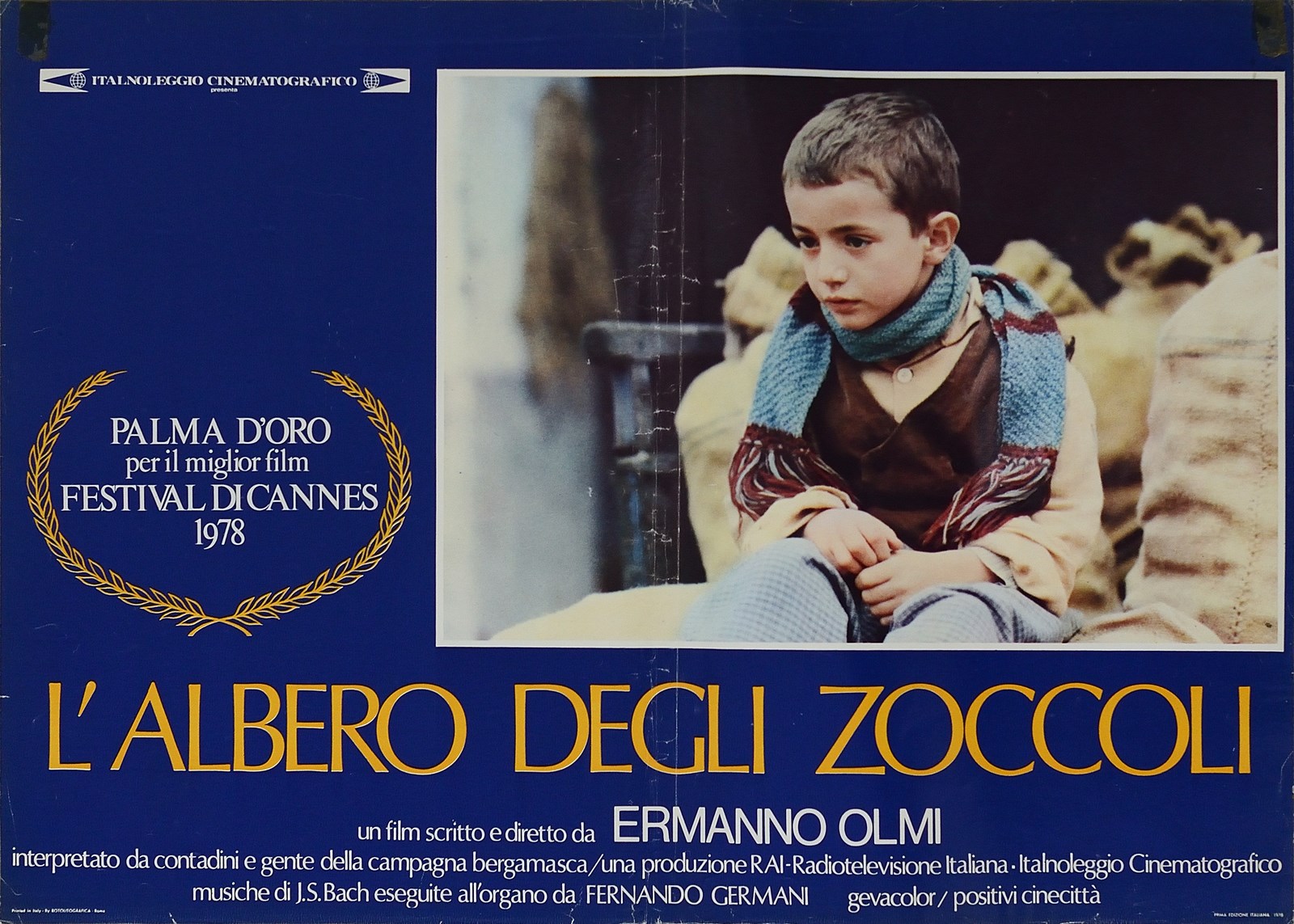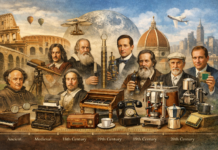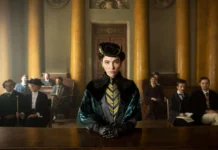
Italian cinema has been marked by a rich variety of auteurs who explored themes from social realism to existential crisis, spirituality, and human emotion. This journey begins in the 1950s, with a wave of influential directors whose works continue to shape Italian and international cinema.
Ermanno Olmi: A Spiritual Cinema of Poetic Realism
Ermanno Olmi, often seen as the Catholic counterpart to Pier Paolo Pasolini, emerged as a director whose focus on human-nature relationships and spirituality set him apart. His 1958 debut, Il tempo si è fermato, is a delicate exploration of isolation and human connection, set against the quiet, profound beauty of the Italian Alps. Olmi’s attention to detail and poetic realism became hallmarks of his style.
Olmi gained critical acclaim in 1961 with Il posto, a poignant portrayal of the struggles of working-class youth in a booming Milan. The film is a bittersweet commentary on the alienation that often accompanied Italy’s economic transformation. However, it was with L’albero degli zoccoli (1978) that Olmi cemented his place in global cinema. This beautifully rendered tale of peasant life, which won the Palme d’Or at Cannes, captures the fading rural traditions of Lombardy with a profound sense of nostalgia.
After a period of illness, Olmi returned in the late 1980s with Lunga vita alla signora! and La leggenda del santo bevitore, both of which earned him major accolades, including the Leone d’Oro in Venice. In 2001, he completed Il mestiere delle armi, widely regarded as his masterpiece. This historical epic on Giovanni dalle Bande Nere was both critically and commercially successful, winning nine David di Donatello awards. His later works, like Cantando dietro i paraventi (2003) and Centochiodi (2007), continued to explore spiritual themes, rounding off a career marked by his unique blend of realism and mysticism.
Marco Ferreri: A Satirical and Provocative Visionary
Marco Ferreri’s career began in the 1950s, with a style influenced by his fascination with surrealism and dark humor, traits often likened to Luis Buñuel. His early works, such as El pisito (1958) and El cochecito (1959), were produced in Spain, exploring societal norms through grotesque satire. By 1969, Ferreri had achieved artistic maturity with Dillinger è morto, a film that uses absurdity and alienation to critique modern life.
Ferreri’s career reached international acclaim with La grande abbuffata (1973), a controversial film about indulgence and the human condition. This work cemented Ferreri’s reputation as a bold provocateur. In the 1990s, he released La casa del sorriso (1991) and Diario di un vizio (1993), both lauded for their unflinching depiction of human vices and existential dilemmas.
Bernardo Bertolucci: A Journey through Politics, Identity, and Cinematic Beauty
Bernardo Bertolucci started as an assistant to Pasolini but quickly diverged to forge his own path, focused on individual identity amid socio-political turmoil. La commare secca (1962) was his directorial debut, but it was Prima della rivoluzione (1964) that signaled his arrival as a major talent.
In the 1970s, Bertolucci released some of his most influential works. Il conformista (1970), based on Moravia’s novel, is a study of Fascism and personal compromise. This was followed by Last Tango in Paris (1972), a provocative exploration of intimacy and alienation, which remains one of the decade’s most controversial films. By 1976, with Novecento, a sweeping epic on class struggle in Italy, Bertolucci became internationally renowned.
Bertolucci’s career reached new heights with L’ultimo imperatore (1987), a historical drama set in China that won nine Academy Awards, including Best Picture and Best Director. In the 1990s and early 2000s, Bertolucci continued to experiment with global settings in Il tè nel deserto (1990) and Il piccolo Buddha (1993), both of which explore cross-cultural encounters and spiritual quests. His later works, such as Io ballo da sola (1996) and The Dreamers (2003), returned to more intimate and youthful explorations of desire and identity.
Gianni Amelio: A Social Realist in Modern Italy
Gianni Amelio, whose early work centered on Italian socio-political realities, made his debut with Colpire al cuore (1982), a film that delves into terrorism’s effects on personal relationships. His 1989 film Porte aperte, based on Leonardo Sciascia’s novel, earned him international recognition.
Amelio’s 1992 film, Il ladro di bambini, explores the struggles of two abandoned siblings and earned numerous accolades, including the Cannes Special Jury Prize. In Lamerica (1994), Amelio depicted the hardships of Albanian immigrants in Italy, a poignant examination of hope and disillusionment. His Così ridevano (1998) and Le chiavi di casa (2004) continued his focus on the complex emotional landscapes of family relationships.
Nanni Moretti: Personal and Political Cinema
Nanni Moretti entered the film scene with Io sono autarchico (1976), which was a satirical take on Italian youth. This was followed by Ecce Bombo (1978), a humorous exploration of societal disillusionment that solidified his reputation. Known for blending personal reflection with broader social critique, Moretti’s work often uses irony to address political and existential themes.
In La messa è finita (1985), Moretti portrayed a disillusioned priest, a performance many consider his finest. His 1994 film Caro diario, a blend of personal essays and social commentary, won him Best Director at Cannes. Moretti achieved international acclaim with La stanza del figlio (2001), a poignant story of loss that won the Palme d’Or. In Il caimano (2006), he controversially critiqued Prime Minister Silvio Berlusconi, blending humor with political commentary in a reflection on modern Italian society.
Conclusion: The Ever-Evolving Landscape of Italian Cinema
From the contemplative realism of Olmi to Ferreri’s dark humor, Bertolucci’s philosophical epics, Amelio’s social realism, and Moretti’s introspective satire, Italian cinema has been shaped by directors who bring unique visions and philosophies to the screen. Each director has contributed to Italy’s rich cinematic legacy, exploring the human condition and the changing dynamics of Italian society from post-war to modern times. The tradition of visionary Italian cinema continues today, with new filmmakers inspired by the audacious storytelling and profound themes pioneered by these iconic auteurs.
Italian Dating & Chat for Italian Singles

Virtually meet thousands of like-minded Italian singles and connect at lightning speed; on desktop, tablet, and your beloved phone. Chat into the wee hours of the night if you’d like. Post photos, share your interests and dreams-we’ll help you look your best while you do it.Here we make it easy to meet Italian singles and feel things out first so when you do go on that first date, or meet for espresso, you can relax and be yourself. Try it now!





